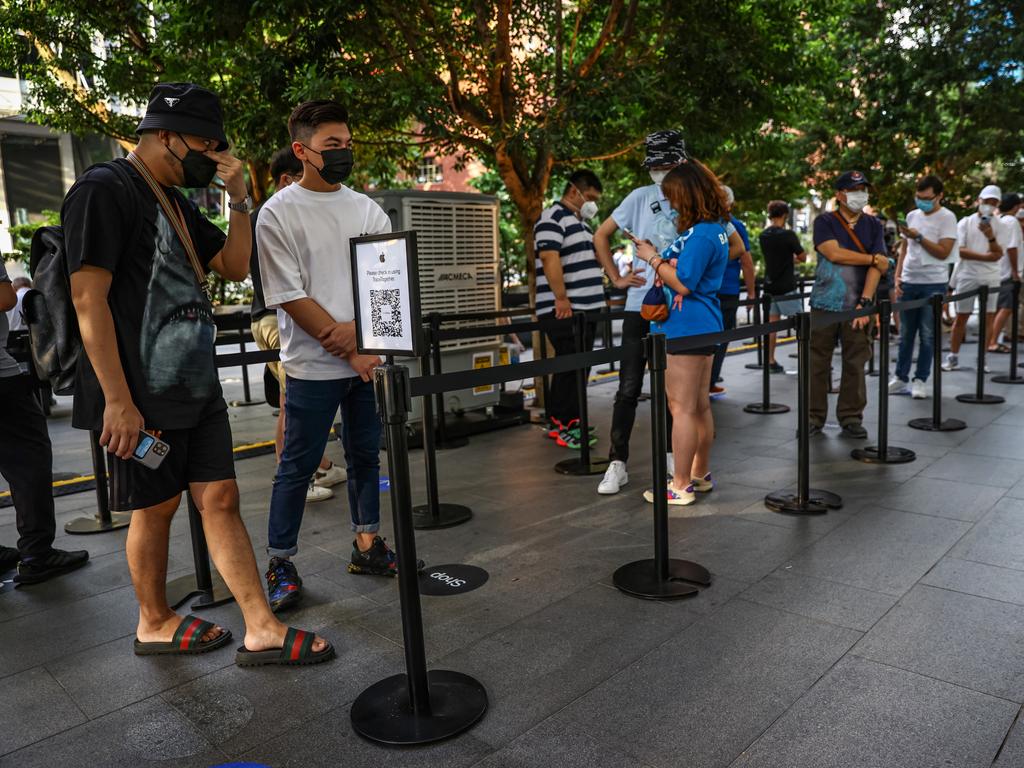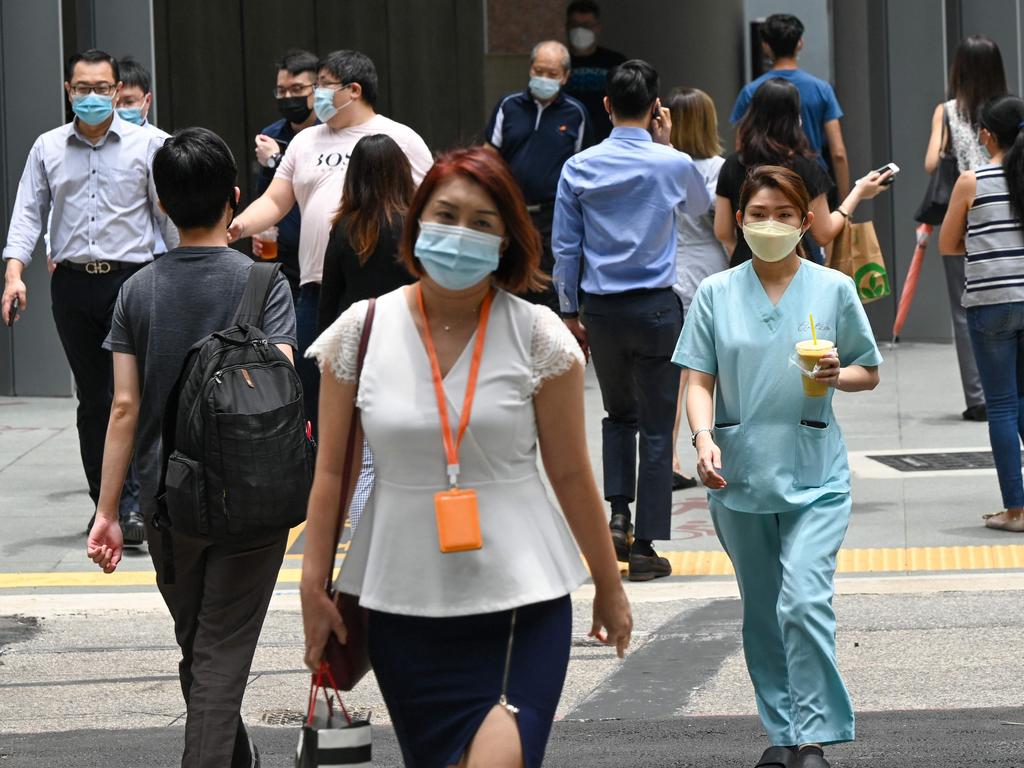Singapore Covid cases: New restrictions introduced as infections climb again
Despite being one of the world’s most vaccinated locations, Singapore is now being forced to tighten some of its Covid restrictions.
News
Don't miss out on the headlines from News. Followed categories will be added to My News.
Singapore has been hailed globally for its success in combatting the coroanvirus, but new developments in its battle against the pandemic are proving how difficult it will be to sustain a return to normal life.
Despite the fact that over 80 per cent of its population has been fully vaccinated, and despite a commitment to “live with Covid”, the city-state’s government has announced it will be reimposing restrictions amid a fresh surge in cases.
Singapore recorded 1504 new infections on Thursday, its biggest daily spike since the beginning of the pandemic.
In response, the Ministry of Health (MOH) has announced it will be tightening restrictions from September 27 to October 24 in an attempt to slow the spread.
From Monday, social gatherings will be reduced from a maximum of five to two people, with the rule applying to household visitors and dining establishments for vaccinated residents.

Citizens have also been told to limit their social gatherings to just one per day, with a preference placed on meeting in outdoor, public venues to reduce transmission.
Working from home will also remain the default for employers able to do so, and primary and special-education schools will continue home-based learning until at least October 7.
Addressing the new restrictions, Singapore’s Trade Minister Gan Kim Yong acknowledged the pressures this would place on the economy.
“This was a very difficult decision for us as we know that this would affect many businesses and people,” said Mr Yong.
“While doing so may not reduce the number of daily new infections immediately, it will allow us to slow down the speed of increase and avoid overtaxing our healthcare workers.”
In response to the escalating cases, the MOH has increased its facilities which offer 15-20 minute rapid antigen testing and will allow people aged 50 to 59 to access the Covid vaccine booster from October 4.
Currently the extra mRNA shot is only available for residents aged over 60.

Daily cases expected to reach 6000
Singapore may have one of the most inoculated populations in the world, but its rate of infections is now proceeding at an alarming pace.
According to local newspaperThe Strait Times, the country’s current daily case count translates to around 26 cases per 100,000 people.
By comparison, the US and the UK are reporting 40 to 50 cases per 100,000 people, while some European countries have reduced their cases per 100,000 to between seven and 10.
Singapore’s health officials have said they expect their daily case figures to eventually reach 6000, reports Reuters.
Health Minister Ong Ye Kung also admitted that cases are likely to rise before they stabilise, blaming the Delta variant for the “quicker than expected” increase.
However, Mr Kung added that compared to other countries, Singapore’s death count – which currently sits at 73 – has remained low.
“We may seem like we are trailing some European countries, which are or have reopened and are living lives quite normally,” said Mr Kung.
“But remember, they paid a huge price in human lives – mostly last year – which we will do whatever we can to minimise.”
What ‘living with Covid’ actually looks like
Like Australia, Singapore’s game plan to “live with Covid” involves shifting the focus away from case numbers and onto reducing hospitalisations and controlling outbreaks.
This pivot to becoming “Covid resilient” came with eased restrictions to allow Singaporeans to live more freely.
Previously, restrictions eased from August 10 allowed 50 per cent of employees to return to the workplace, with groups of five vaccinated residents allowed to eat in at restaurants, cafes and bars. Households were also allowed to welcome five visitors.
While quarantine-free international travel has been allowed for vaccinated citizens between Hong Kong, Macao, Brunei and Germany since September 8, it’s yet to be announced whether these new restrictions will affect Singapore’s borders.
Despite the tightening of restrictions, the percentage of Covid patients who’ve fallen severely ill or died from the virus is still relatively low, at 0.3 per cent of infections. As of Friday, the country has recorded 1092 hospitalisations, with 23 requiring intensive care and 162 cases requiring supplemental oxygen.
Comparatively NSW, which is approaching a fully inoculated rate of 60 per cent, currently has 1186 hospitalisations, with 232 cases in ICU and a total of 331 deaths since the pandemic began.
Although Singapore is currently “tapping the breaks” on its road map to normal, its government officials have long conceded Covid will likely be a part of daily life for a long time to come.
“The bad news is that Covid-19 may never go away. The good news is that it is possible to live normally with it in our midst,” wrote Finance Minister Lawrence Wong, Trade and Industry Minister Mr Yong, and Health Minister Mr Kung in June of this year.
“We can’t eradicate it, but we can turn the pandemic into something much less threatening, like influenza, hand, foot and mouth disease, or chickenpox, and get on with our lives.”
Originally published as Singapore Covid cases: New restrictions introduced as infections climb again









